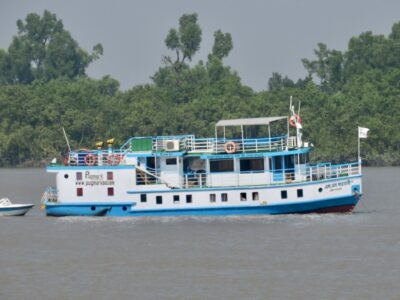The Earth Institute will offer nine research assistant opportunities for undergraduate students during the spring 2016 semester. Undergraduates from Columbia and Barnard will be able to serve as research assistants on research projects related to sustainable development and the environment with distinguished faculty and researchers at the cutting edge of this burgeoning field.

Successful applicants will work directly with faculty on these projects on a part-time basis. These research assistantships are funded at a rate of $15 per hour for 10 hours per week and up to a maximum of 120 hours for the spring semester.
The research positions are:
- Delving Into the Past: Using Paleoclimate Archives to Reconstruct Flood History
- Sustainable Intensification Indicators
- Indicators of Affordability of Nutritious Diets in Africa (IANDA)
- Understanding the ITCZ and Monsoons Through a New Ensemble of Climate Model Simulations
- Anammox and Denitirification
- Characterizing Isotopic and Chemical Composition of Water and Sediment Sources of the Dead Sea
- Tracking Domestic Implementation of the 2015 Global Climate Agreement
- Social and Economic Impacts of Extreme Events
- Air Quality in India
To apply:
To apply for these positions, complete the online application available here http://fs21.formsite.com/earthinstitute/form65/index.html by January 26 at 11:30 p.m. While you may apply for more than one position, you must submit separate applications. Note that only undergraduates from Columbia and Barnard are eligible to apply. Decisions will be made shortly after the deadline.
Students who are awarded research assistantships will be expected to participate in the Earth Institute Student Research Showcase, which takes place in spring 2016.
Contact Jessica Sotomayor (jsotomayor@ei.columbia.edu) with any questions. Address cover letters to “Jessica Sotomayor, Senior Program Manager, Office of Academic and Research Programs.”
1. Delving Into the Past: Using Paleoclimate Archives to Reconstruct Flood History
Department: Columbia Water Center
Anticipated tasks: Paleoclimate records stem from a broad range of archive types with differing temporal records and resolutions. How can these different records be used to improve estimates of flood risk in the US? This study will investigate different types of paleoclimate records, collect data relevant for flood reconstructions in the south-west US, where numerous records exist, and form the foundations for delving into a history of floods over the past 1000 years.
Skills required:
- qualitative analysis
- data collection
- statistical analysis skills – competent use of R or similar
2. Sustainable Intensification Indicators
Department: Agriculture and Food Security Center
Anticipated tasks: Sustainability in agricultural production is at the forefront of current and future projects but there is little consensus on the definition and measurement of sustainability in intensifying agricultural landscapes. The goal of the sustainable intensification indicator project is to develop and recommend indicators and metrics for sustainable intensification (SI). The project’s focus is on agricultural systems in African landscapes to examine trade-off that occur at different scales as farmers intensify production.
TASKS
1.Review existing material on data, metrics, and indicators used in examining sustainable intensification (SI).
2.Derive indicators that cover; agricultural productivity, human wellbeing, environmental and social domains.
3.Conduct a data gap analysis.
4.Examine the type of methods used to produce indicators and proxy variables.
5.Interact with practitioners and project managers who are involved in on-going projects that explore SI indicators.
Skills required:
1.Background in agriculture, environmental economics, and or sustainable development.
2.Working knowledge or willingness to learn a statistical package like STATA, R., and GIS
3.Interest in environmental, agricultural, and socioeconomic data collection and analysis.
4.Open interest in working with a multi- disciplinary team
3. Indicators of Affordability of Nutritious Diets in Africa (IANDA)
Department: Agriculture and Food Security Center
Anticipated tasks: Dr. Herforth is a researcher on the IANDA project together with a team of researchers from the Tufts Friedman School or Nutrition Science and Policy, University of Ghana, Sokoine University in Tanzania, and the Johns Hopkins Bloomberg School of Public Health. Two key objectives of the project are: 1) to use currently available price and market data to develop valid, feasible metrics of the availability and affordability of nutritious, diverse foods and diets and 2) to recommend methods for indicator construction and suggestions for modifying food price monitoring and other data collection systems. The intern will help provide background information and analysis of current linear modeling tools for food pricing, including Optifood, Save the Children’s Cost of a Healthy Diet, and the Consumer Price Index for Food, and possibly others to be determined. The intern will conduct a literature review of these tools, including information on how they are devised and implemented, as well as analysis of their effectiveness. The intern will produce a report for Dr. Herforth summarizing the findings.
Skills required:
- Basic understanding of modeling and statistics: The intern will not be performing any statistical analysis, but should be sufficiently familiar to understand these tools and how they work
- Research and writing: The intern should be able to conduct research and write a report
- Understanding of issues around nutrition and food security in developing countries
4. Understanding the ITCZ and Monsoons Through a New Ensemble of Climate Model Simulations
Department: Lamont-Doherty Earth Observatory
Anticipated tasks: Assist with organizing and analysing the climate model data of the model-intercomparison project (MIP). This includes controlling the quality of the data, adapting exisiting scripts, and possibly developping new scripts based on existing scripts. The work also includes generating figures and participating in the discussion of the scientific results with the two supervisors. In case of scientific need to better understand the MIP results, the student will also have the possibility to run additional simulations with the ECHAM6.1 climate model that one of the supervisors (Aiko Voigt) uses and that contributes to the MIP.
Skills required: A strong interest in climate science, climate models and the numerical analysis of climate model data. Some background in atmosphere and climate science and some experience in working with Linux environments and Python would be helpful, but we will provide guidance and training for the student. Good communication skills, and the ability to work in a team.
5. Anammox and Denitrification
Department: Earth and Environmental Engineering
Anticipated tasks: Measure levels of ammonia, nitrite, nitrate, and COD in a continuously operating biological reactor.
Skills required: A background in biological wastewater treatment and lab experience (pipetting, use of common equipment, etc.) are helpful, but neither is a strict requirement.
6. Characterizing Isotopic and Chemical Composition of Water and Sediment Sources of the Dead Sea
Department: Geochemistry, Lamont-Doherty Earth Observatory
Anticipated Tasks: The Middle East is a region where water is a scarce resource, and climate models predict a drier future in a warmer world. In the Dead Sea (Israel, Jordan, Palestine) salt (mainly halite) precipitated during the driest periods of interglacials. The peak of the last interglacial, which was driven by the insolation peak, was characterized by an unstable climate and sharp changes between wet and very dry periods that were much drier than today. This project aims to characterize these dry and wet cycles and identify the sources of water and rainfall pattern in the region. These issues are crucial for future water management and planing in the expected warmer Middle East.
The tasks include digesting sediment samples, preparing water samples (including co- precipitation with iron), column chemistry and working in LDEO clean lab.
Skills required: Interest in geochemistry and paleoclimate
7. Tracking Domestic Implementation of the 2015 Global Climate Agreement
Department: Sabin Center for Climate Change Law
Anticipated tasks: The Sabin Center for Climate Change Law develops legal techniques to fight climate change, trains students and lawyers in their use, and provides up-to-date resources on key topics in climate law and regulation. Part of our work involves tracking the latest developments in domestic and international climate change law, and publishing this information on our website. In December 2015, the Parties to the United Nations Framework on Climate Change (UNFCCC) intend to finalize a new global agreement on climate change mitigation adaptation. This agreement will provide a guiding framework for the implementation of greenhouse gas (GHG) reductions and adaptation measures at a domestic level. The Sabin Center is currently seeking an undergraduate RA to monitor the measures undertaken by different national governments in furtherance of the climate change mitigation and adaptation objectives set forth in the agreement. Specifically, this intern would be responsible for tracking new developments in national climate change laws and policies and updating our Climate Change Laws of the World database with this information. The intern would also help update our blog and other social media resources to keep the public informed about what other countries are doing to address climate change.
Skills required: The RA should be detail-oriented, fluent in English, and capable of efficiently reviewing laws and policy documents. Ideally, the RA also would have some familiarity with climate change policy in the U.S. and/or other jurisdictions.
8. Social and Economic Impacts of Extreme Events
Department: Columbia Water Center
Anticipated tasks: As nations around the world face rising exposure to weather-related disasters, adaptation is becoming a growing policy priority. Yet, surprisingly, the economic impacts of disasters are poorly understood. This knowledge gap limits disaster risk analysis and decision making.
The Columbia Water Center is addressing this research gap by developing new techniques for quantifying the social cost of extreme events in the 21st century. Full costs of disasters extend beyond property damage and include impacts on health, the environment, and interruption of business and public services. This research will advance knowledge of disaster management challenges facing millions of people worldwide.
The center is seeking a student researcher to assist with organizing and analyzing disaster impact data of flooding in the United States. This includes controlling data quality and developing statistical models to identify rigorously assess factors, such as land use and socioeconomics, that influence the magnitude of impacts.
Skills required: Ability to learn statistical analysis, manage datasets, and communicate results. Some background in regression analysis and experience working with statistical software would be helpful, but we will provide guidance and training for the student. Interest in natural disaster management, adaptation, environmental economics, and/or water resources are also strongly encouraged.
9. Air Quality in India
Department: Lamont-Doherty Earth Observatory
Anticipated tasks:
- Analyzing ambient PM2.5 and PM10 data observed at several cities in India.
- Analyzing satellite-measured aerosol optical depth observations over the Indian subcontinent.
- Evaluating a global chemical transport model simulation of air quality over India using the measurements described previously
- Participation in meetings with the Air Quality in India research team, including the groups of Dr. Ruth DeFries and Dr. Arlene Fiore from Columbia, and Dr. Virendra Sethi from IIT- Mumbai.
Skills required: Must have some experience with a data analysis software such as Microsoft Excel. Experience with Matlab, R, python, etc. is a plus but not required.



